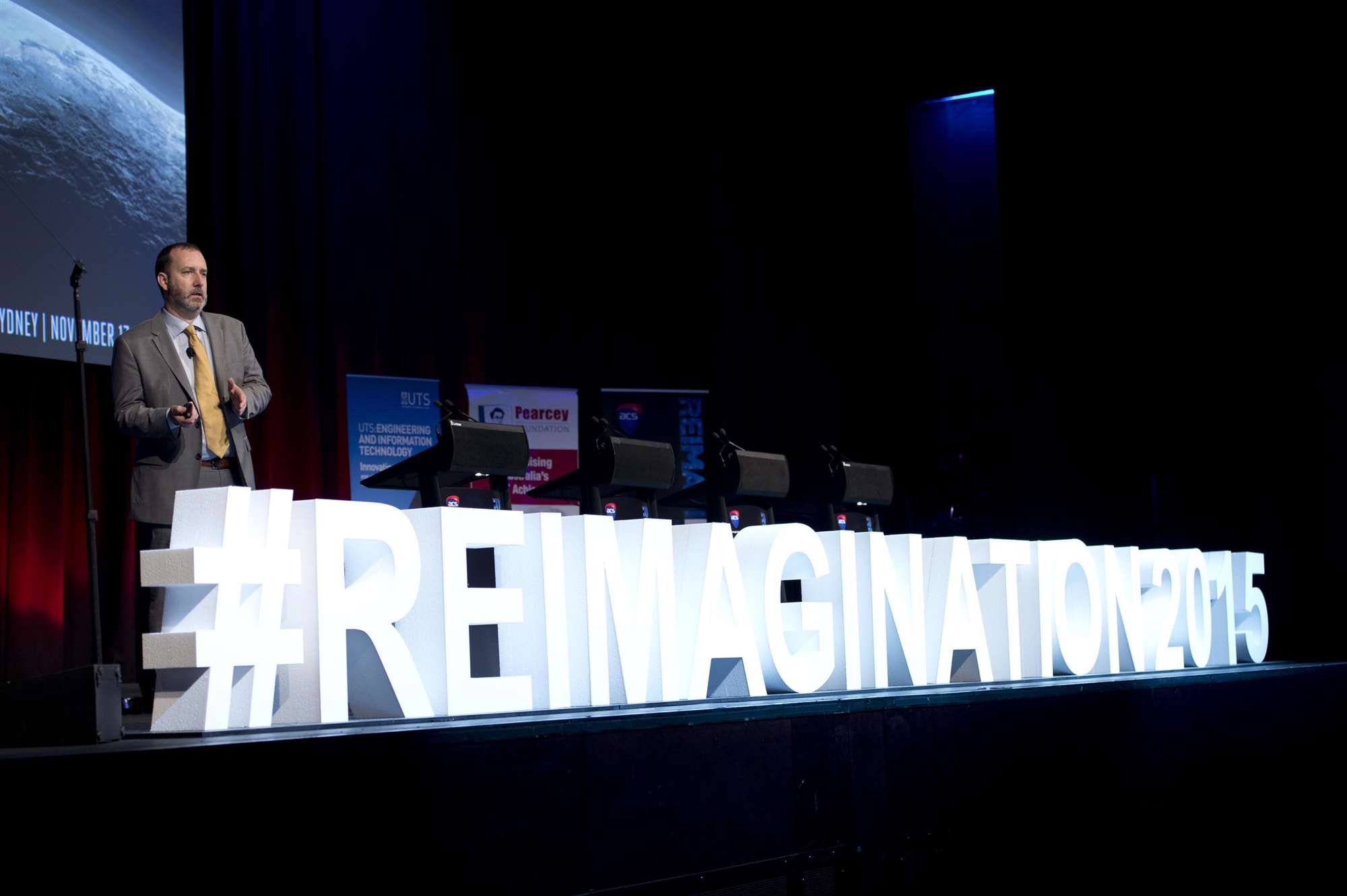Kevin Ashton – the British sensor expert who coined the term ‘Internet of Things’ – laments the popular perception of IoT as “smart” toasters and fridges.
Presenting a keynote address at ACS Reimagination 2015, Ashton sought to reframe the conversation – and therefore direction – of the Internet of Things (IoT) from novelty sensing to applications that could have macroeconomic impact.
“Here’s what the Internet of Things is: when you think about this world of connected stuff, we live in this world full of potential information,” Ashton said.
“If you think about how much data there is in the world that you could possibly ever collect, and how much data we do actually collect, you realise we really don’t collect any data at all yet.
“What the Internet of Things does – and is doing – is using automatic sensors to start gathering data about the world. They’re turning the world into data and sticking it into a cloud where there are algorithms that automatically look at the information and automatically make decisions.
Rather than enabling you to turn on light globes, Ashton saw IoT as a way for the world to sustainably cope with the expected huge population increase by the end of this century.
“As the human race grows, we need to consume fewer resources,” he said.
“We’re living longer, we want a higher quality of life, there are more of us, and therefore resources will become increasingly scarce.
“So for the first time in human history we are now generating outputs – food, water, places to live, ways to travel – without increasing the inputs, the raw materials we use. And we can do that because of information.
“Information is a great way to reduce waste and increase efficiency, and that’s really what the Internet of Things provides.”
However, it was a message that Ashton often had trouble airing. He lamented media interviews where IoT was boiled down to communications between smart appliances.
“Some people assume that a ‘thing’ is like a device, and what you see in the popular press is smart homes, kitchen goods and light bulbs, so people get the idea that that’s the Internet of Things,” he said.
The mischaracterisation of IoT had “gotten worse lately” as an app on a smartphone started to be described as a ‘thing’.
“And then to really make my life miserable there’s these crowdfunding websites like Kickstarter which is where stupid ideas go to get money,” he said.,
“And so you put it all together and you get stuff like the smart wine bottle, the smart bikini, and the smart water bottle.
“This stuff is not the Internet of Things – this stuff is all rubbish.”
Despite the difficulties in wresting back control of the Internet of Things definition, Ashton was upbeat that the technology would survive the hype and go on to achieve great things.
“During the 21st Century, Australia will become a major player in the world of the Internet of Things,” he predicted.










